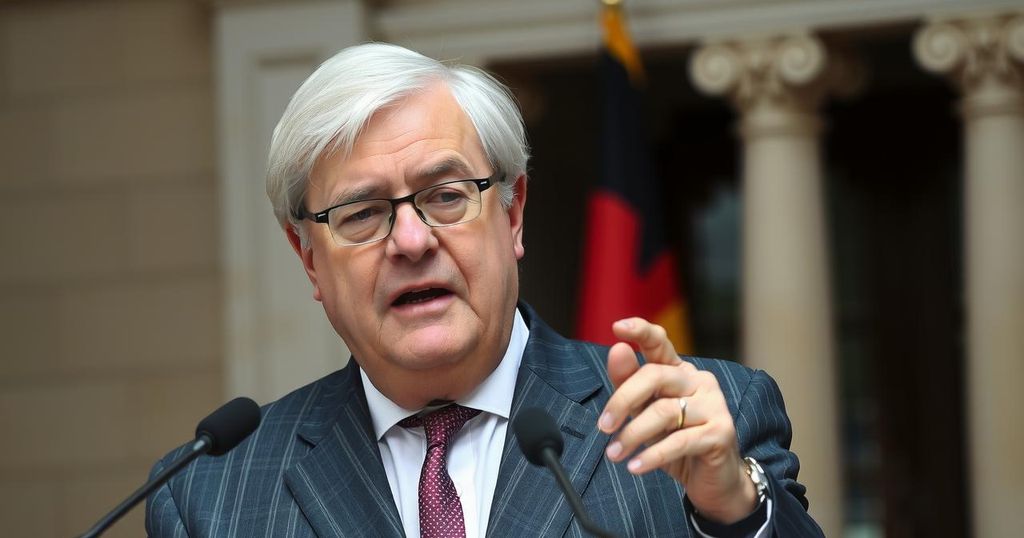German President Frank-Walter Steinmeier dissolved parliament and set February 23 as the date for early elections following the collapse of Chancellor Olaf Scholz’s government. He called for campaigns to be conducted respectfully and warned against foreign interference, particularly on social media. The upcoming government will face significant challenges amid an economically unstable environment and pressing security concerns.
On Friday, German President Frank-Walter Steinmeier announced the dissolution of parliament and confirmed February 23 as the date for the early general election. The decision follows the recent collapse of Chancellor Olaf Scholz’s coalition government, which faced internal disputes regarding strategies to rejuvenate Germany’s economy. The ongoing public discourse has been exacerbated by a tragic car-ramming incident at a Christmas market, intensifying discussions surrounding security and immigration issues.
In his address, President Steinmeier emphasized the urgent necessity for political stability in Germany, urging candidates to conduct their campaigns “with respect and decency.” He voiced his desire for a transparent electoral process while cautioning against foreign interference, particularly attributing such influences to the social media platform X, formerly known as Twitter. He further stated, “Hatred and violence must have no place in this election campaign, nor denigration or intimidation… all this is poison for democracy.”
Steinmeier reminded political parties and voters alike of the significant challenges that await the incoming government, highlighting the precarious economic landscape alongside ongoing conflicts in the Middle East and Ukraine, as well as contentious debates surrounding immigration and climate change. Until a new government is appointed, Chancellor Scholz will operate in a caretaker capacity, a situation that could extend for several months as the political landscape evolves.
The announcement of early elections in Germany has arisen due to recent governmental instability following the collapse of Chancellor Olaf Scholz’s coalition. Internally, the coalition faced disagreements on economic revitalization strategies, and external factors such as security concerns following a violent incident have fueled public discourse. This dissolution highlights the ongoing challenges within German politics, including the necessity for a stable government to address pressing national and international issues.
President Steinmeier’s dissolution of parliament and the call for early elections underscore a critical juncture in German politics. With the February 23 election on the horizon, the emphasis on respectful campaigning and the avoidance of divisive rhetoric reveals a concerted effort to foster democratic integrity. The incoming government will be faced with formidable challenges, necessitating effective leadership and a cohesive policy response to contemporary issues.
Original Source: www.kyivpost.com






